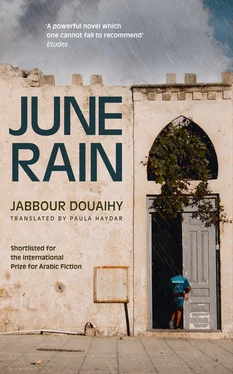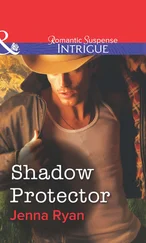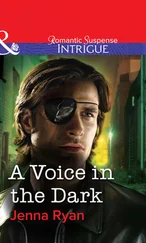His shop was never the same after the incident. It had deteriorated along with his health. The first products to go were yogurt and cheese and anything else that needed refrigeration, after power cuts became more frequent and the refrigerator broke down and he gave up trying to fix it. Next he gave up anything that might wilt — vegetables, fruit, bunches of bananas, and boxes of oranges. He kept only those colourful bags of potato chips and two or three brands of cigarettes which he stored in empty glass containers, the kind one might imagine having once been filled with grains, and a hanging metal basket in which his wife put spare fresh eggs from her own chickens.
Despite everything, he didn’t close his shop. He didn’t know what had happened to the other shops. There had been four or five of them around the square that started closing down, one after the other. The owners’ children went off to school or went abroad in order to secure a comfortable retirement for their parents. He had been the only one to persevere. He arrived at seven in the morning and left at eight in the evening. He sat all day looking out onto the square.
People said the shopkeeper saw everything. But which shop? When the battle began, a number of men took refuge in one of the shops, according to the magistrate’s report.
Eliyya obtained a copy of the report and set off in a taxi — a Mercedes that was old, like its driver, who kept glancing up at him in the rearview mirror. The bends were frequent and the road was narrow. There was a huge quarry machine chipping away at the mountain. They both felt ill.
Houses began to appear on both sides of the road. Scattered villas, copies of homes of the American South with grand entrances, a façade that reminded one of a Roman temple, various types of Swiss chalet, and between them, here and there, a few modest houses. All of a sudden there appeared a building made of white stone in Japanese architectural style, or something like it.
‘Who designed those houses?’ Eliyya exclaimed when he saw them. ‘How can they live in them?’
‘They’re from diamond money and commerce… the owners got to Africa early on,’ the driver explained with a tinge of envy.
He meant that they had emigrated to Africa and amassed huge fortunes when it was still easy to take advantage of the native black population there.
The car reached the Old Quarter — a conglomeration of houses all stuck together.
‘There’s the church, there’s the square and the shops,’ the driver said.
The driver didn’t ask Eliyya who he was. He simply tossed his cigarette butt out of the car window and asked, ‘Where should I drop you?’
‘In front of the church.’
The driver mumbled something and swerved the car, parking it under the shady eucalyptus tree and said he would wait for him there.
‘Take your time. The church is over there.’
The driver walked over to the shop to ask for a drink of cold water. Eliyya saw him from a distance chatting briefly with the man sitting there eating okra and rice. He kept his eyes on his passenger to see when he would come back to the car. Perhaps he would slide the driver’s seat back and seize the opportunity to take a little nap. Under the shade of the eucalyptus tree, the breeze was soothing.
Eliyya began taking pictures immediately, as if he were stealing them and there was only a short window of time before someone discovered what he was doing and tried to stop him. It was a labyrinth of alleyways and houses. Eliyya gazed at the square. It was the first time he’d ever come to this town. In the past, he could never get anyone to come with him. He shaded his face from the strong sun with his right hand.
The shopkeeper had grown accustomed to journalists. They had come in large numbers at the beginning, some the very next day, on the Monday. At the time, the exact number of dead and wounded hadn’t been determined because they’d been taken to several different hospitals in the city. The magistrate’s report listed the names of twenty-four dead including four women, and twenty-eight wounded including seven women and a nun. There were also a large number of wounded who ran off and were not included in the investigation. The journalists continued to come throughout the summer of 1957, until the beginning of the ‘revolution’. There were journalists from Beirut and foreign correspondents from Europe taking pictures of people and the square. They stopped passers-by, asking all kinds of questions, and went around the church noting down in their little notebooks their first impressions, which they then incorporated into their articles.
The most famous of them was Aline Lahhoud, who, despite her experience in journalism, could not help resorting to naïve metaphors. She was constantly trying to cover up the gaps in her spoken Arabic with French expressions like déjà or somme toute and affectionately holding people’s hands or clothes as she spoke to them, both men and women, in order to facilitate communication. Three days after the incident she visited the crime scene, accompanied by the photographer Fuad Haddad. Contrary to her usual practice of flaunting the physical gifts God had endowed her with, and of which she was well aware, she chose to wear a modest grey outfit. Half-mourning, as they say, out of respect for the dead. And in line with her usual practice, before writing her article, before even arriving at the scene of the events, she chose the title: ‘When the Gods Nodded Off’. She kept repeating it to Fuad Haddad using a variety of intonations until she settled on it. At that point, she began writing an article to match her title. She embellished her lengthy investigation with a particular picture. No one knew how she had managed to obtain it. Later, people said that she confused the magistrate investigating the incident and drew his attention to the presence of photographers at the funeral, whose witnessing of the events and whose pictures could be useful, especially since the name of one of them appeared among the names of the wounded: Nishan Hovsep Davidian, age 26, a bullet wound to the lower right leg.
In the picture there were five young men looking anxiously at the camera. Happy to be together, they huddled close to each other to make sure no one was left out of the picture. Aline Lahhoud’s caption read, ‘The last picture. Only a few short minutes after posing for this picture, these five men would meet their death. The bullets of betrayal would mow them down the moment they parted after the picture was taken.’ It was easy to confirm that the young man wearing glasses and standing furthest to the right, the only one of them who had graduated from high school, and who was interested in journalism, actually came out alive. He hadn’t been harmed at all during the exchange of gunfire, but in general it is preferable for this kind of news to be all-encompassing; best to leave out the exception that might reduce its impact on readers. Fuad Haddad took other pictures of the main street in Barqa. Because it was noon, it had been completely deserted except for a woman clad in black walking close to the wall. The first time she ‘listened to silence (that way)’, Aline Lahhoud wrote, ‘in that bereaved town — the silence of the men and the silence of things… and of silence itself,’ as she added, ‘it resonated like a taut string’. From there she moved abruptly from ‘silence’, which she mentioned in her article fourteen times to be exact, to ‘glances’, without so much as a comma. This was a stylistic choice that was expected in such cases since ‘glances’ articulated what a tied tongue could not: dry eyes burning with tears that wouldn’t flow, lying in ambush behind the windows, and looking askance from behind the metal helmets of the soldiers deployed on every corner. Going off on a tangent, she went to Corsica and Sicily in order to suppose that ‘the daggers fashioned especially for revenge that were hanging like relics next to icons of the saints were unsheathed and ready for the right moment to attack’. The final touches were being put on the second chapter of the tragedy. All that was left were the three shots announcing the lifting of the curtain. Who would fire them? And then, using a common metaphor, the elegantly dressed journalist brought out the old cliché of the literary character of Mediterranean violence by stating that ‘the doors were closed and the hearts were closed, too, while pain wore the mask of hatred and the perfume of spring flowers mingled with the lingering scent of anger…’ and persevering, adding in all the elements of her epic…‘the sun was burning and the sky was at its wits’ end after it tried so hard in Burj al-Hawa to stop the tragedy by sending a torrent of rain that was totally unexpected in the middle of June’. She went on to add that the smell of the soil, ‘which was redolent after a long drought, could not stop those men from settling their accounts. It wasn’t the time for being inspired by life’s aroma; it was an ostentatious push towards the precipice.’ Not a single line of Aline Lahhoud’s article was devoid of poetic artifice and no telling of the events of the Burj al-Hawa incident left out the rain. Even if the flirty veteran reporter from the French-language journal Magazine, saw in that downpour some kind of warning or omen of what was to come and proceeded to attribute it to some god from Greek mythology, eyewitnesses confirmed that the heavy rain began to pour down after the outbreak of gunfire, not before. Their explanation for the rain’s timing was that the rainmaker wanted to separate the combatants and limit the harm they inflicted on each other. Others simply deduced that the rain that came pouring down (though one of them insisted what fell was actually the kind of large hail that is rare not only in June but in any month of the year) was nothing short of an expression of God’s wrath over what was transpiring before Him in and around His own house. Or to use lighter terms, the word ‘anger’ would suffice. The deadly incident occurred just two weeks before the legislative elections, which were fraught with warnings that opposition candidates would fail in their run against supporters of the president who was seeking renewal of his term and was using all kinds of pressure for that purpose. Taking a metaphysical approach, Aline Lahhoud turned to Thornton Wilder, the American novelist, and his The Bridge of San Luis Rey : ‘Some say that… to the gods we are like the flies that the boys kill on a summer day, and some say, on the contrary, that the very sparrows do not lose a feather that has not been brushed away by the finger of God.’ Was it divine intervention or divine negligence? Reading Aline Lahhoud’s investigation might lead one to imagine the church massacre as a painting belonging to a naïve style, done in bold colours and divided into two tiers. The ones spraying bullets at each other at the Burj al-Hawa church and in the church square would be on the lower tier and above them a mélange of Greek gods and angels. The Christians would be sitting on their little blue clouds smiling — inadvertently or cunningly — before pelting the fighters with rain to separate them.
Читать дальше












